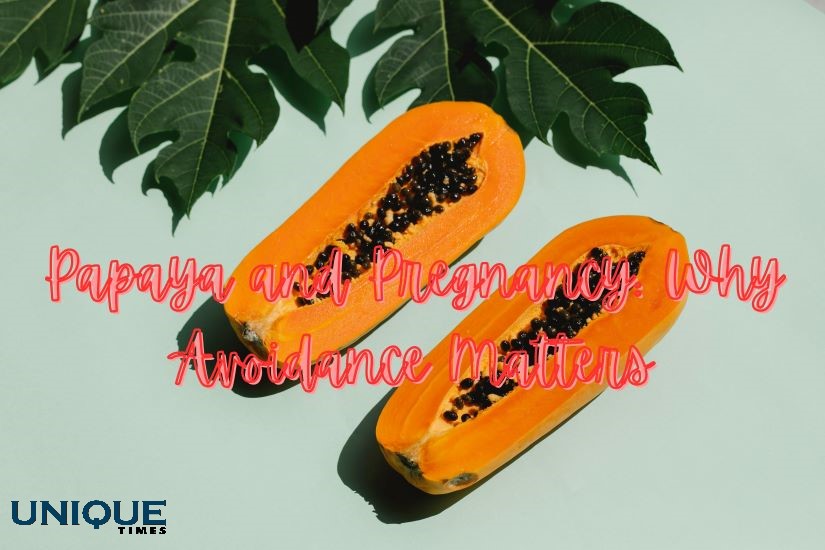Understanding Why It’s Not Safe to Eat Papaya During Pregnancy

Pregnancy is a time of joy and anticipation, but it also comes with a plethora of dos and don’ts to ensure the health and well-being of both mother and baby. While maintaining a nutritious diet is essential during pregnancy, certain foods need to be approached with caution. One such fruit that often raises concerns is papaya. Despite its many health benefits, papaya is generally considered unsafe for consumption during pregnancy. Let’s explore the reasons why eating papaya during pregnancy is not recommended:
1. Risk of Miscarriage
One of the primary concerns surrounding papaya consumption during pregnancy is its potential to induce uterine contractions and stimulate the production of prostaglandins, compounds that can trigger miscarriage or premature labor. Unripe or semi-ripe papaya contains high levels of latex, which is known to have oxytocin-like properties that may cause contractions of the uterine muscles, posing a risk to the developing fetus.
2. Presence of Papain
Papaya contains an enzyme called papain, which is known for its ability to break down proteins. While papain can aid in digestion and offer various health benefits for non-pregnant individuals, its consumption during pregnancy can be problematic. High levels of papain in ripe papaya may lead to digestive discomfort and upset stomach in pregnant women, exacerbating symptoms such as heartburn, bloating, and indigestion.
3. Potential Allergic Reactions
Some individuals may have allergies or sensitivities to certain proteins present in papaya, which can manifest as allergic reactions when consumed. During pregnancy, heightened immune responses and sensitivities to allergens may increase the risk of adverse reactions to papaya, leading to symptoms such as itching, swelling, hives, or even anaphylaxis, which can be potentially life-threatening for both the mother and the baby.
4. Contamination Risks
Consuming contaminated papaya poses additional risks during pregnancy. Papayas may be contaminated with bacteria, parasites, or pesticides, which can cause foodborne illnesses such as salmonella or toxoplasmosis. Pregnant women are particularly susceptible to foodborne illnesses due to changes in their immune system, making them more vulnerable to infections that can harm the developing baby.
5. Interference with Hormonal Balance
Some studies suggest that certain compounds present in papaya may interfere with hormonal balance during pregnancy. While more research is needed to fully understand the effects of these compounds on pregnancy hormones, the potential risk of hormonal disruption raises concerns about the safety of papaya consumption during this sensitive period.
In conclusion, while papaya is a nutritious fruit packed with vitamins, minerals, and antioxidants, it’s best to err on the side of caution and avoid consuming papaya during pregnancy. The potential risks associated with papaya consumption, including the risk of miscarriage, digestive discomfort, allergic reactions, contamination, and hormonal interference, outweigh any potential benefits.
Instead, pregnant women should focus on consuming a balanced diet rich in fruits and vegetables that are known to be safe during pregnancy, and consult with their healthcare provider if they have any concerns or questions regarding their diet. Prioritizing the health and safety of both mother and baby is paramount during pregnancy, and making informed choices about food consumption is an essential aspect of prenatal care.
Picture Courtesy: Google/images are subject to copyright








